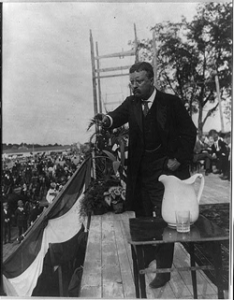Preschool attendance does not actually improve standardized test scores. This recent finding seems to fly in the face of decades of research, advocacy, and common sense. It also calls into question the billions of dollars that federal, state, and local governments are spending to expand pre-K education towards universal access. However, reframing these results from another perspective allows us to rethink some fundamental questions: How are we measuring education results? What are these educational results even for?
A Happy Accident
In the 1990s, the mayor of Boston decided to prioritize universal kindergarten and shifted money away from the preschool budget. School administrators resorted to a randomized lottery to divvy up the limited number of remaining public preschool slots. The presence of such a natural experiment — two nearly identical groups of children differentiated by one year of preschool — presented a rare opportunity for researchers to analyze the effectiveness of preschool.
The results, however, surprised researchers, who found “no detectable impact on state achievement test scores.” Such results seem disappointing when you consider how much weight and discussion America places on standardized test scores. But the researchers also discovered that the students who attended preschool gained a host of other benefits: they became less likely to skip class, get suspended, or sent to a juvenile detention facility but were more likely to take the SAT’s, graduate high school, and attend college. Other randomized and peer-reviewed studies have found that students who attend preschool are healthier, happier, better employed, more likely to cook their own meals, and less incarcerated than their peers from similar or worse neighborhoods.

Preschoolers during a counting lesson. Photo from Pavel Danilyuk on Pexels.
These results indicate that while preschool might not make kids “smarter” in terms of raw academic achievement, it does meaningfully improve their lives (and the connected lives of their siblings and children). These results likely stem from the development of social and emotional skills in preschool. Such skills help children better resist immediate impulses and persist in their long-term goals. Preschool, in short, stimulates character growth in future citizens that pays dividends for students and society down the road. These long-term successes of character training, while important, are strikingly different from our current focus on short-term academic results.
The Current Short-Term Metrics
While standardized tests have been around in American education since the 1800s, policymakers began relying on them more in the 21st century. In 2001, the No Child Left Behind Act (NCLB) linked standardized testing results to federal school funding. The Every Student Succeeds Act (ESSA, 2015) delegated much of the testing administration to the states, but retained the focus on yearly standardized tests to determine funding. All states now measure four main metrics: achievement on English/Language Arts (ELA) and math; English proficiency; graduation rates; and a state-chosen indicator of school quality (usually chronic absenteeism).
Policymakers, recently, have begun to introduce additional and more nuanced metrics in school accountability. Illinois, for example, updated their accountability metrics after the ESSA so that student growth on standardized tests matters twice as much as the raw proficiency on test scores. Illinois also includes “Student Success Indicators” like absenteeism rates, school “climate” surveys, and college and career readiness as 25% of their accountability metrics. While this is a step in the right direction, it will be several years before the results of such changes are evident. Moreover, 75% of the school’s performance is still based on the standardized test scores that reveal only short-term academic performance; in short, the updates are just tweaks, not substantive overhauls to the system. This overwhelming emphasis on test scores still centers education policy discussions on short-term metrics and solutions. Meanwhile, meaningful interventions, like universal access to preschool, are given short shrift because their impact takes much longer to assess.
As psychologists and economists will tell you, you become what you measure; put another way, what gets assessed gets addressed. According to the (in)famous Campbell’s law, relying too much on any quantitative measurement distorts the incentives and cultivates corruption within school systems. The real-life effects of these distortions can be seen in the Atlanta testing scandal (where administrators cheated on tests to get more school funding), the T.M. Landry scandal (where the school faked grades and just focused on SAT prep in order to get disadvantaged students into top colleges), and in the anxiety-inducing stress responses of high-stakes tests. To paraphrase Chimamanda Adichie, the danger of this single story about test scores and education performance is not that they are inaccurate, it is that they are incomplete. They do not tell the whole story about the goals or content of American education. The focus on test scores tells students, educators, and policymakers that the purpose of education is to get better at tests; in contrast, America has a rich, if neglected, tradition of broader educational goals: character and citizenship training.
The American Tradition of Character & Civic Education
Historically, the wider goal of education as a form of character and citizenship training has deep American roots. The Founders, influenced by the Greek and Roman classics, believed that you had to master your passions in order to master political deliberation, that you have to govern your self before you can govern as a citizen. The renowned American educator John Dewey argued that schools needed to be training grounds for citizenship, that “Democracy has to be born anew every generation, and education is its midwife.” President Teddy Roosevelt proclaimed that “education must contain much besides book-learning in order to be really good…no keenness and subtleness of intellect, no polish, no cleverness, in any way make up for the lack of the great solid qualities. Self-restraint, self-mastery, common sense, the power of accepting individual responsibility and yet of acting in conjunction with others, courage and resolution—these are the qualities which mark a masterful people.”

President Theodore Roosevelt giving a speech, presumably about citizenship education. Photo from the Library of Congress on Picryl.
Moreover, education as citizenship training is not limited to just improving social-emotional skills like discipline or executive functioning. Citizenship education should also develop the ability of students to effectively engage and dialogue with the social challenges of the day. As the Progressive Era journalist SS McClure argued, the “vitality of democracy” depends on “popular knowledge of complex questions.” Today, this would include a renewed emphasis on media literacy and respectful dialogue to prepare citizens to better engage with the shared democratic process.
Renewing the importance of character and citizenship training in American education would also mitigate the harms of relying mainly on test scores to evaluate learning. The incorporation of additional metrics would lower the pressure of standardized tests and express a better message: that students, and schools, are more than their test scores.
Alternative Accountability
Educators and policymakers can pull from numerous sources to improve their accountability metrics, including ones around character and citizenship training. The Danielson Framework for assessing teachers incorporates numerous inputs around four domains, instead of just measuring one output (test scores). Alnoor Ebrahim persuasively argues for more nuanced accountability metrics for complex social change models, such as education. Specifically, he points out that measurement itself is an act of “social construction,” and that more integrated and balanced accountability systems include a variety of inputs, outputs, and societal outcomes. For education, that would mean including more inputs like attendance, effective pedagogies, and school cultures, and societal outcomes like incarceration rates, college attendance, and participation in civic life.
Policymakers can use the preschool results as an example to backwards design new, non-test metrics and goals. If policymakers want to incorporate character training metrics, schools can measure the extent and effectiveness of social-emotional learning programs through surveys, teacher feedback, and innovative performance assessments. Moreover, policymakers could also prioritize process over product by focusing on incentivizing evidence-based interventions like universal preschool, universal free lunches, and restorative justice programs that pay dividends down the road. Taking a page from the Danielson framework, policymakers could also incorporate metrics on the presence of engaging curricula, fine arts offerings, and mentoring programs. For citizenship training, new metrics could include the involvement of the community in the school, experiential learning opportunities for the students to volunteer and change their communities, and programs to help students engage with people of differing backgrounds and beliefs.
Any of these experimental new metrics would require patience and hope. It will take years to fully realize the effects of such programs through later proxies like suspension, graduation, incarceration, and voting rates for students. But today’s educators and policymakers should consider the importance of planting such experimental seeds during the opportunities of a post-pandemic world.
Rethink, Experiment, Invest
Post-pandemic, we have a rare opportunity to rethink the goals and structure of American education. In addition, the surprising results of preschool attendance (no change to test scores but improved health and character) should serve as a revelatory invitation to reassess how and what we measure in education. As we move forward, educators and policymakers should broaden their horizons to a more inclusive and longer-term perspective on education. Embrace more nuanced accountability systems, incorporate additional, non-testing metrics, return to the American tradition of character and citizenship training, and invest in the future of our children. Preschool may not make kids “smarter,” but it does transform them into healthier, happier, and more effective citizens. And we need those citizens in order to continue the American experiment for a more perfect union.
John Groden is a law student at Loyola University Chicago School of Law and wrote this blog post as a part of the Education Law and Policy course.


